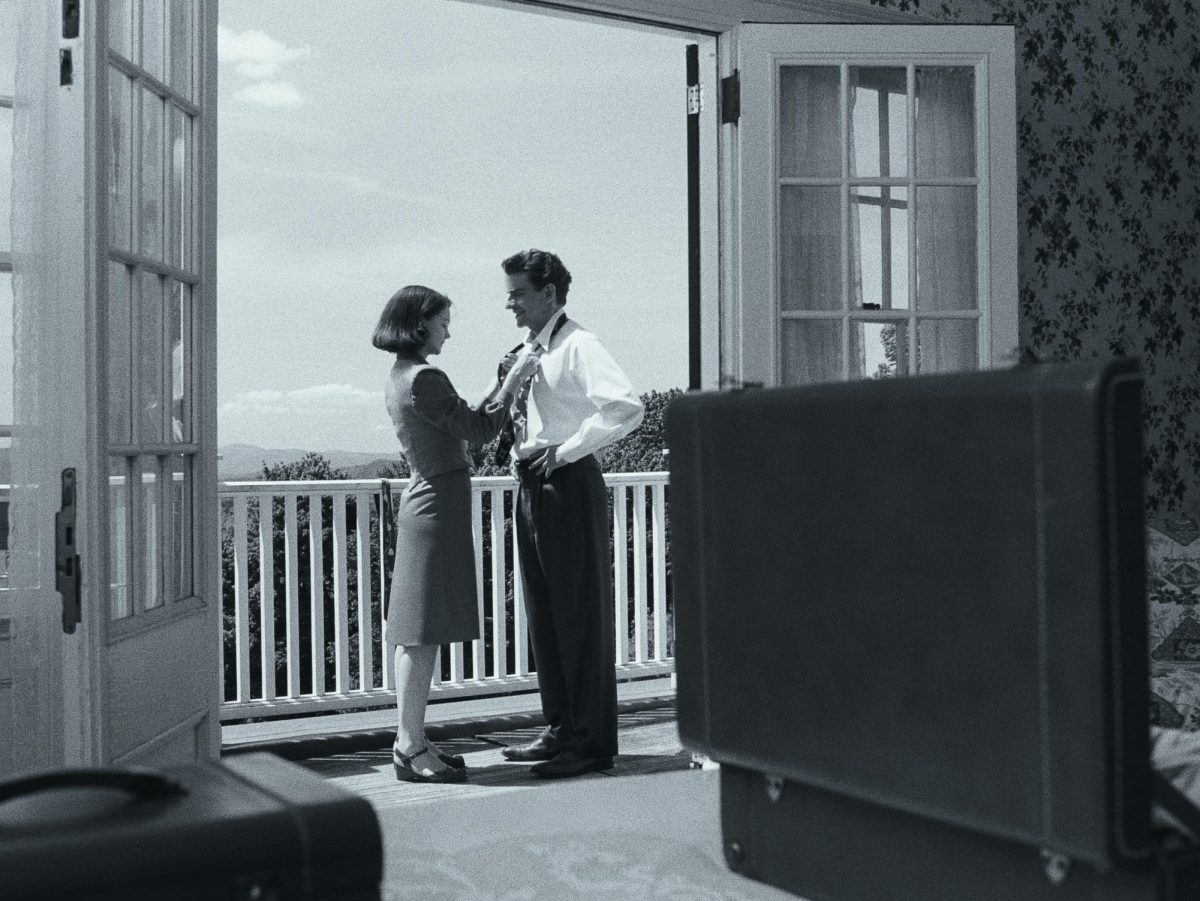It’s really, really hard to make a good biopic.
Most people interested enough in someone’s life to watch a cinematic retelling of their story already know that story, making it a challenge to have a biographical movie be entertaining or revelatory. But Bradley Cooper manages to do that and more in “Maestro,” his dreamily shot portrait of composer Leonard Bernstein’s musical brilliance and marital bumbling, a film amid a limited theatrical release and which hits Netflix next month.
The film gives some attention to the public life and prolific conducting career of Bernstein, played by Cooper, swirling into Bernstein’s debut as the head of the New York Philharmonic Orchestra despite no rehearsal after the chief conductor got sick. But the composer’s career isn’t the movie’s focus, and where it really ascends beyond typical formulaic biopics is in its attention on Bernstein’s marriage to actress Felicia Montealegre, portrayed by Carey Mulligan.
The first 40 minutes of the movie are a black-and-white whirlwind of “Lenny,” as he’s nicknamed, and Felicia falling in love, both perpetually mid-cigarette and sipping whiskey when not taking a drag. The romantic path is a fresh divergence from a biopic’s typical journey — the film is less concerned with the artist’s ascent past his doubters, a movie already made a million times before.
There’s certainly some of the classic rise-to-greatness narrative, like a dream ballet sequence where the couple watches a crew of buff young sailors dance to a symphonic score Bernstein composed for the musical “On the Town.” The main focus, though, is on the private moments between Lenny and Felicia, with the black-and-white visuals and suave man-about-town persona Cooper gives to Bernstein, making the movie reminiscent of 1940s romances.
These scenes are so effective for the reason that any great romantic film, written in the 1940s or 2020s, are: there’s two charming, attractive people with good chemistry reading well-written lines to each other.
One can feel the burgeoning love between the brilliant composer and Czech actress seeping off the screen in one scene, where the two lie on the floor because Bernstein threw his back out, and they laugh over nothing in particular as Cooper’s character waves a cigarette around. It’s endearing, well-acted and everything a compelling romance needs to be.
But as the movie continues on, and the gray tones of the film stock flip into color, Bernstein’s tale becomes less rosy. The film shows his frequent affairs, particularly with the young male protege Tommy, and how they all but wreck his marriage to Felicia.
The tension between Lenny and Felicia builds until a scene set during Thanksgiving, where an at-best very tipsy Bernstein returns home — after living with Tommy — ranting about one of his children leaving a stuffed animal of Snoopy in the foyer. The camera follows him upstairs, where Mulligan’s Felicia confronts him.
Cooper again avoids a common trap of biopics here. As easy as it would be to have a quickly cut scene full of screaming to really hammer the audience over the head with the idea that the person they’ve lionized in their minds maybe isn’t a great guy, “Maestro” does almost exactly the opposite.
A single steady camera watches Mulligan and Cooper from a distance as they trade barbed words about Bernstein’s undependability and his inability to provide love to his family. Mulligan conveys decades of pain and emotional dissatisfaction in one of the best single-scene performances of the year as she laments how Bernstein has tossed her to the side in favor of his conducting and various younger partners.
After she storms out and resolves to leave him, Bernstein is left alone, slumped in a couch, wearing a Hugh Hefner-esque half-unbuttoned shirt, whiskey in hand as a parade float of Snoopy goes by his window. The sight of Snoopy is funny, but also somewhat crushing, as Cooper reduces this titan in public imagination to a drunk so depressed he can’t even get off his couch to go view his family’s favorite parade float with them, creating a compelling portrait of Bernstein you’d be hard pressed to find elsewhere.
The film’s highlight, though, is a later scene where Bernstein conducts Mahler’s Second Symphony in the Ely Cathedral. With Cooper himself really conducting the whole range of musicians, the camera lingers on him as he gestates, waving his hands all over the place, and a cacophony of sound fills the theater from the Dolby Atmos surround sound. Nothing in the movie captures what made Leonard Bernstein a great composer quite like seeing Cooper’s rendition of him completely lose himself in a musical performance.
The final shot of the performance cuts away from the sweaty, aging Bernstein to Felicia, who resolved that she missed whatever attention Lenny gave her and came to see him perform. The first thing Bernstein does after his performance ends is to run to her and kiss her, crying, but before the audience can even process their reconciliation he’s gone again, back up on the stage.
All we’re left with is a shot of Felicia, halfway between laughing and crying. They get their happy ending for the moment, but Cooper isn’t willing to totally brush over all the complications and unhappiness that characterized the life and particularly the marriage of someone so romanticized in the public eye.
The movie is helped by what any piece of media about a great musician is — you get to listen to their music for two hours. The sweeping strings of classical symphonies and plinking chords from “West Side Story” and “On the Town” are about as good of a movie score as you can ask for.
“Maestro” can take advantage of the benefits one receives when making a biopic of one of the all-time great musicians. But it excels precisely because it doesn’t do what other music biopics do.
The driving story isn’t about a musician’s life, but about a person’s marriage. It just so happens you’re gonna see some incredible concerts along the way.



